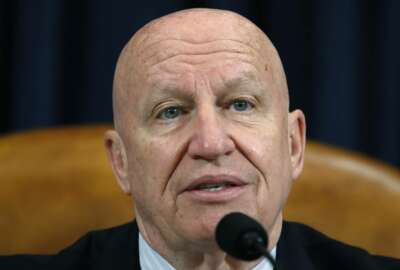

The windfall elimination provision reduces the Social Security benefit for someone with less than 30 years of covered service if they qualify for an SSA benefit...
In most ancient cultures — Greece, Egypt, Persia, for example — wise old men and women passed on stories about the wrath of the fire god, the rain god, etc., as part of the culture of their tribe or nation. Aztecs, Mayans, Vikings, Celts — you name it, in just about every culture elders traditionally passed on information aimed at teaching, terrifying or making future generations wiser and better.
And in some cases, like the federal civil service, unhappy with their lot.
For many long-time government workers the issue is more pedestrian than Olympian. It’s about Social Security, as in not getting enough or their fair share.
In the federal civil service the tradition is more recent, having been born in 1982. But despite its relative youth, it still evokes passion, fear and anger, especially among us seniors who happen to be long-time civil servants. It is the (true) tale of the windfall elimination provision, or WEP for short.
Though complicated, WEP in effect reduces the Social Security benefit for someone with less than 30 years of covered service if they qualify for a Social Security benefit after as little as five years of covered service.
Congressional investigators said that because of the so-called “welfare tilt” designed to protect people with short-work histories or who were in lower-paid Social Security jobs many feds under the old Civil Service Retirement System, which is not covered by Social Security, retired on relatively high federal annuities. These were based on their length of service and highest income level, while also getting relatively high Social Security benefits for short-term, low income jobs before joining government.
Congress also said that some high-income feds intentionally took Social Security-covered jobs after retiring. Then after five years they qualified for relatively high social security benefits, too.
Backers of WEP said it was needed to correct the tilt which gives short-time, low-income individuals under Social Security a relatively bigger benefit even as middle- or higher-income civil servants benefited from a system that rewards longer service and higher salary.
Since WEP became law in the early 1980s hundreds of thousands of federal, state and local government employees with their own public pensions and Social Security have seen the latter benefit reduced when they retired.
To qualify for a benefit under Social Security people had to have a minimum of 40 quarters paying more into the Social Security fund. Many federal and public employees, whose government jobs were not under Social Security, either had enough minimum quarters to qualify for a Social Security from private sector work before they joined government.
Others qualified for Social Security by taking a lower-paid job, paying the minimum into the fund but qualifying for the maximum benefit under both the CSRS and Social Security programs. To eliminate the so-called “windfall,” giving a larger Social Security benefit to people with minimum time and dollar contributions into the fund, Congress reduced benefits for people who:
Since the mid-80s, groups representing active and retired feds, as well as state and local employees not under Social Security, have sought out congressional champions to overturn WEP. This year that congressional champion is Rep. Kevin Brady (R-Texas) who says that in some cases WEP costs some federal retirees more than $400 per month in earned benefits.
What are the odds WEP will be repealed this year, or anytime soon? Nobody knows, but it’s been on the chopping block for nearly 25 years. SSA has the full story on WEP.
By Amelia Brust
Legendary mystery writer Agatha Christie was also a keen surfer. She was introduced to the sport in 1922 in South Africa, while she and her first husband Archie were helping to organize a world tour to promote the British Empire Exhibition. By the time she made it to Hawaii later that year, she was learning “to become expert – or at any rate expert from the European point of view – the moment of complete triumph on the day that I kept my balance and came right into shore standing upright on my board!” she wrote in her autobiography.
Source: The Guardian
Copyright © 2025 Federal News Network. All rights reserved. This website is not intended for users located within the European Economic Area.
Mike Causey is senior correspondent for Federal News Network and writes his daily Federal Report column on federal employees’ pay, benefits and retirement.
Follow @mcauseyWFED


